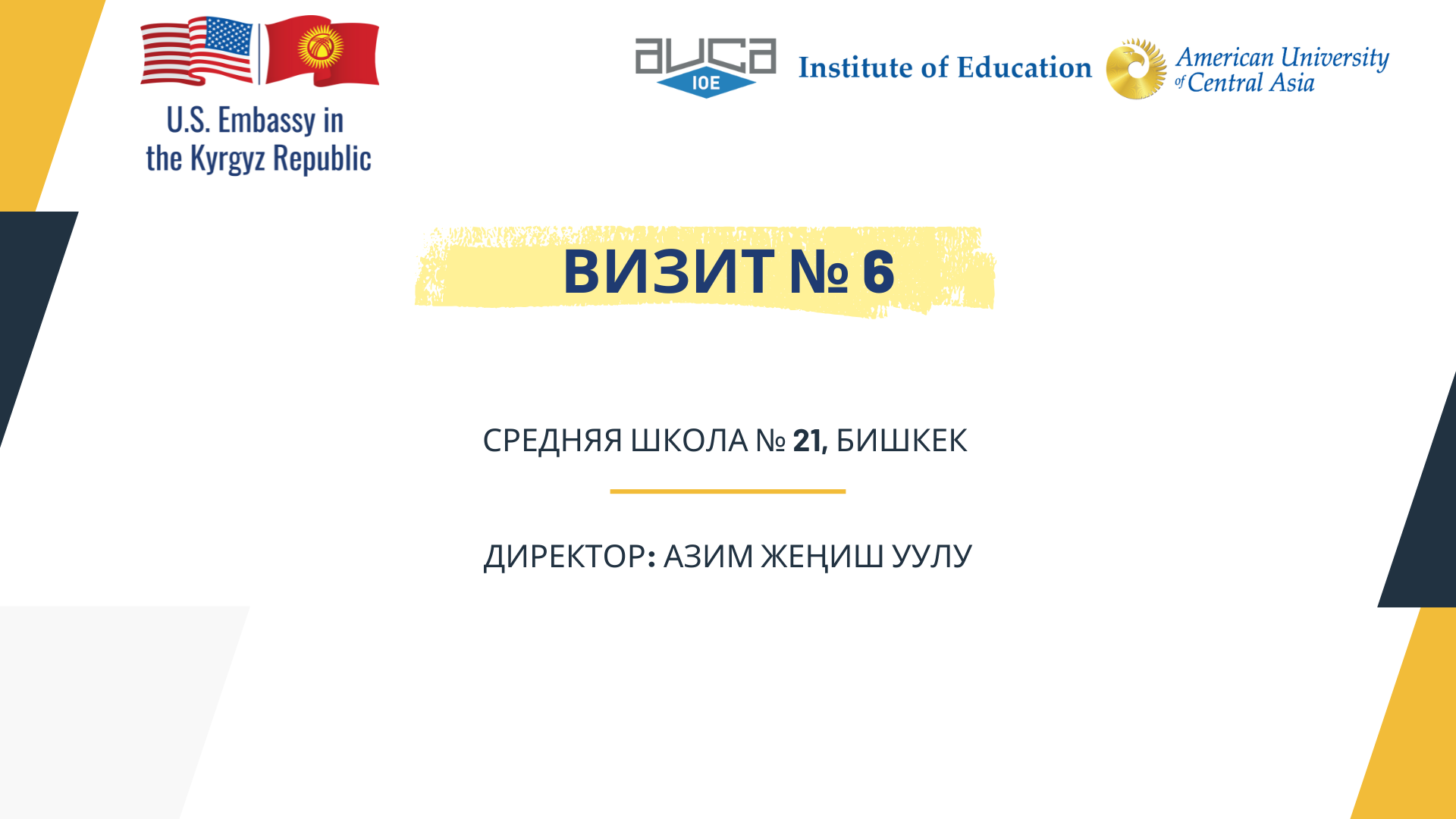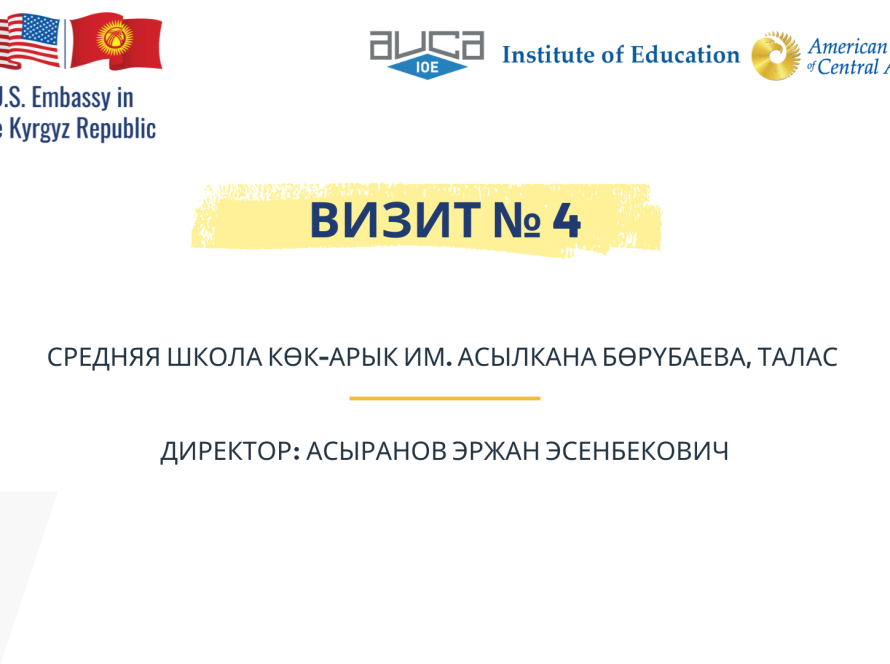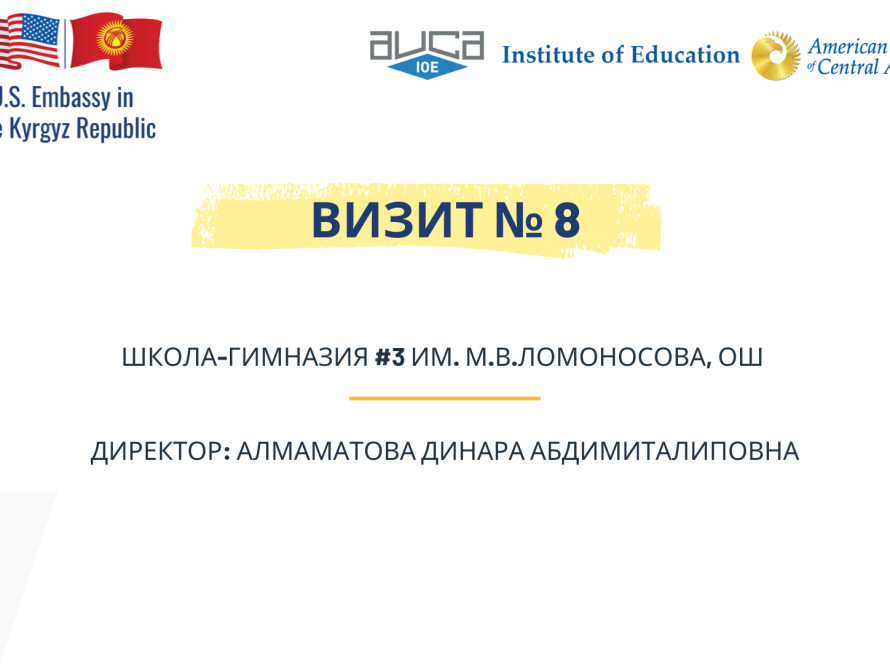Post-Visit Report: Insights from School Visits – Manifesting Learning and Collaborative Practices
Introduction
On February 27, 2025, School No. 21 in Bishkek hosted the seventh reciprocal school visit under the FORUM 2.0 project. The visit brought together school directors from Talas, Issyk-Kul, and Chui regions, including Samara Edieva, Aizada Apazova, Azim Jenish uulu, Aelita Zholchieva, and others. The event was facilitated by the FORUM Project Manager, Aigul Karimova, and supported by the host school’s administration. The objective was to deepen peer exchange and share best practices across diverse school leadership contexts in Kyrgyzstan.
School Highlights
The day began with a welcoming session and a school video presentation structured around the six leadership domains of the project. The school tour highlighted creative, student-centered approaches in classrooms, extracurricular programs (taekwondo, komuz, STEM), and impressive schoolwide visuals—including student artwork and a Manas performance in the courtyard. Directors observed a calm and organized school climate, with attention to both aesthetics and educational rigor.
Masterclasses in several classrooms and exposure to student-led projects helped showcase how School No. 21 integrates innovation with national values. Participants also engaged in a discussion session where visiting directors presented their leadership videos, sparking peer feedback and reflection.
Discussion Highlights and Best Practices
The visit underscored several strategies worth replicating:
Ethno-Pedagogical Integration: The school’s use of cultural heritage (e.g., performances, murals, and language) in daily education was seen as a strong model for grounding learning in local identity.
External Partnerships for Infrastructure: The school demonstrated how to leverage partnerships with municipal authorities and private sponsors to enhance digital infrastructure and classroom resources.
Inclusive Leadership and Staff Development: Participants noted the collaborative spirit between the school director and staff, supported by regular professional development cycles and constructive school climate.
Support for Vulnerable Students: Socially disadvantaged students benefit from targeted support through charity events and scholarship partnerships, reflecting a values-based leadership model.
Student Empowerment and Ownership: From student parliament initiatives to science and arts projects, the school cultivates leadership and initiative among learners.
Reflections from Participants
Visiting directors found the experience both inspiring and pragmatic. One participant reflected:
“This visit reaffirmed that leadership is not just about policy—it’s about community, visibility, and everyday care for students and staff.”
Others highlighted how video reflections provided a useful mirror for their own practices, and how peer observation helped clarify challenges and new strategies they could adapt.
Conclusion
The visit to School No. 21 offered a vivid example of how schools in urban settings can integrate innovation, equity, and cultural values into school leadership. As the FORUM 2.0 project continues, such exchanges are proving to be not only capacity-building moments for directors—but also catalysts for systemic collaboration and shared vision across regions.



